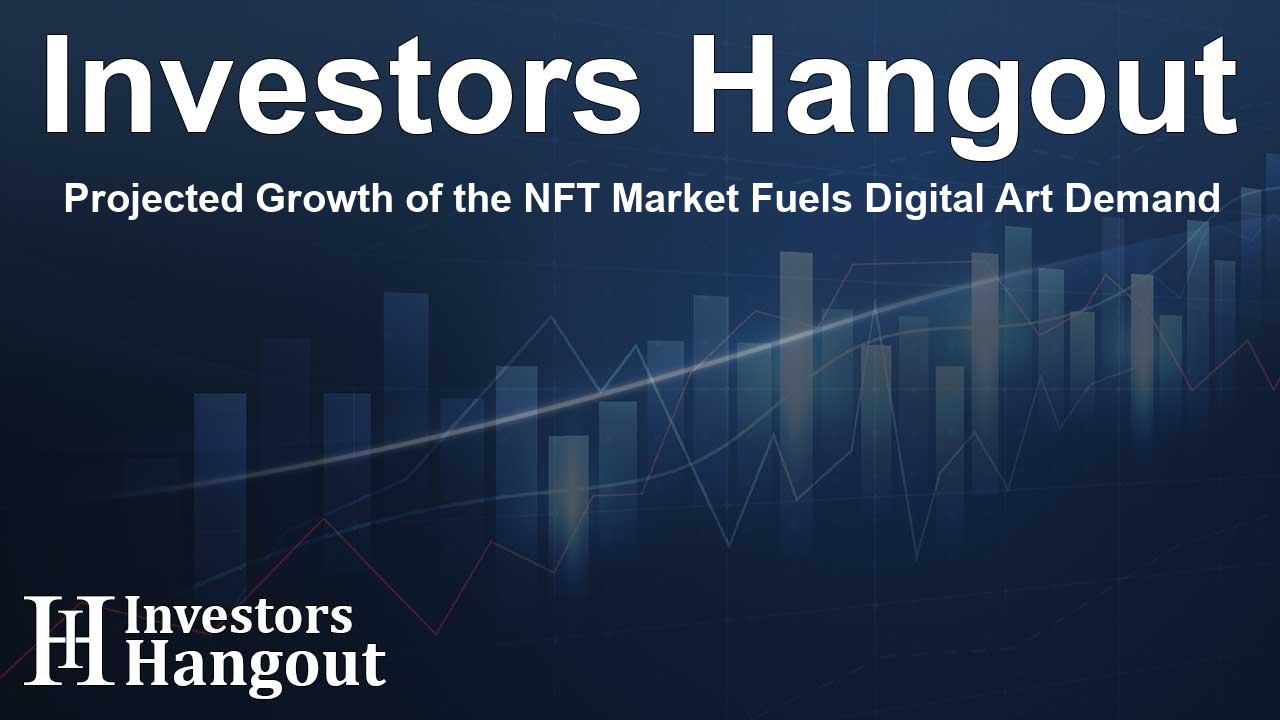Projected Growth of the NFT Market Fuels Digital Art Demand

The Future of the Non-Fungible Token Market
The world of Non-Fungible Tokens (NFTs) is experiencing an unprecedented boom, with projections indicating a remarkable growth of USD 84.13 billion from 2025 to 2029. This surge is primarily driven by the escalating demand for digital art and collectibles, alongside the increasing interest from major brands and artists alike, as the NFT market carves its place in both the art and technology sectors.
Understanding NFT Market Dynamics
NFTs, unique digital assets verified through blockchain technology, are revolutionizing the concept of ownership in the digital art realm. Unlike conventional art, which can be replicated, NFTs provide a scarce and verified form of ownership, making them highly desirable for collectors and investors. The popularity of NFTs has invited an array of participants into the space, from digital artists to sports organizations, each aiming to leverage the next wave of digital transformation. This transition aligns with the broader trends of digitization and the emergence of the metaverse, enabling new forms of artistic expression and community engagement.
Driving Forces Behind Market Growth
Several factors are propelling the growth of the NFT market. Firstly, the rapid digitalization across various sectors, including art, music, and gaming, has created a vibrant ecosystem where NFTs can thrive. Additionally, the unique characteristics of NFTs, such as their ability to encapsulate exclusivity and ownership rights, attract a diverse audience ranging from tech-savvy millennials to established collectors. Major brands, including Visa and Budweiser, have begun to recognize the potential of NFTs as innovative marketing tools, thereby further fueling consumer interest and acceptance.
Challenges Facing the NFT Market
Despite the excitement surrounding NFTs, the market is not without its challenges. Issues like fraud, regulatory uncertainties, and potential market volatility create hurdles that stakeholders must navigate. As the NFT landscape continues to evolve, the need for clearer regulations regarding intellectual property rights, taxation, and online transactions becomes increasingly crucial for fostering a healthy, sustainable market environment.
Market Segmentation and Trends
The NFT market can be segmented based on various criteria, including application areas, end-users, geographical location, and types of assets. Notably, applications range from collectibles and virtual real estate to digital art and gaming items. The growing acceptance of NFTs in the commercial sector further highlights the opportunities for businesses to engage consumers through unique offerings.
The Role of Emerging Technologies
Emerging technologies such as AR (Augmented Reality) and XR (Extended Reality) are contributing to a more immersive experience within the NFT market. These technologies enhance the way consumers interact with their assets, transforming static ownership into dynamic engagement. As creators experiment with these technological advancements, we can expect to see novel forms of content creation that blend art with interactive experiences.
Looking Ahead: The NFT Industry's Potential
The future of the NFT market is bright, with numerous opportunities anticipated across various industries. As companies and artists continue to explore innovative use cases for NFTs, the market could significantly disrupt traditional models of publishing, art sales, and entertainment. The key will be to address and mitigate the risks associated with fraud and regulatory compliance while promoting inclusivity and education around NFT benefits.
Innovations in Decentralized Finance
The integration of NFTs within the decentralized finance (DeFi) ecosystem presents another layer of potential. By combining NFTs with digital currencies, creators can unlock new funding channels, monetize their works in unprecedented ways, and potentially initiate new marketplaces that prioritize artist rights and royalty systems. This fusion of artistry and finance will redefine how we perceive ownership in the digital age.
Frequently Asked Questions
What is an NFT?
An NFT, or Non-Fungible Token, is a unique digital asset verified through blockchain technology, representing ownership of a specific item or piece of content.
Why is the NFT market expected to grow?
The NFT market is set to grow due to increasing demand for digital art, involvement of major brands, and advancements in technology enhancing user experience.
What challenges does the NFT market face?
The NFT market faces challenges such as regulatory uncertainties, fraud risks, and the need for clearer frameworks regarding intellectual property rights and taxation.
How do NFT transactions work?
NFT transactions occur through blockchain technology, allowing users to buy, sell, and trade NFTs securely while verifying ownership and authenticity.
What industries are impacted by NFTs?
NFTs are impacting various industries, including art, gaming, music, and sports, changing how creators and consumers engage with digital assets.
About The Author
Contact Lucas Young privately here. Or send an email with ATTN: Lucas Young as the subject to contact@investorshangout.com.
About Investors Hangout
Investors Hangout is a leading online stock forum for financial discussion and learning, offering a wide range of free tools and resources. It draws in traders of all levels, who exchange market knowledge, investigate trading tactics, and keep an eye on industry developments in real time. Featuring financial articles, stock message boards, quotes, charts, company profiles, and live news updates. Through cooperative learning and a wealth of informational resources, it helps users from novices creating their first portfolios to experts honing their techniques. Join Investors Hangout today: https://investorshangout.com/
The content of this article is based on factual, publicly available information and does not represent legal, financial, or investment advice. Investors Hangout does not offer financial advice, and the author is not a licensed financial advisor. Consult a qualified advisor before making any financial or investment decisions based on this article. This article should not be considered advice to purchase, sell, or hold any securities or other investments. If any of the material provided here is inaccurate, please contact us for corrections.
